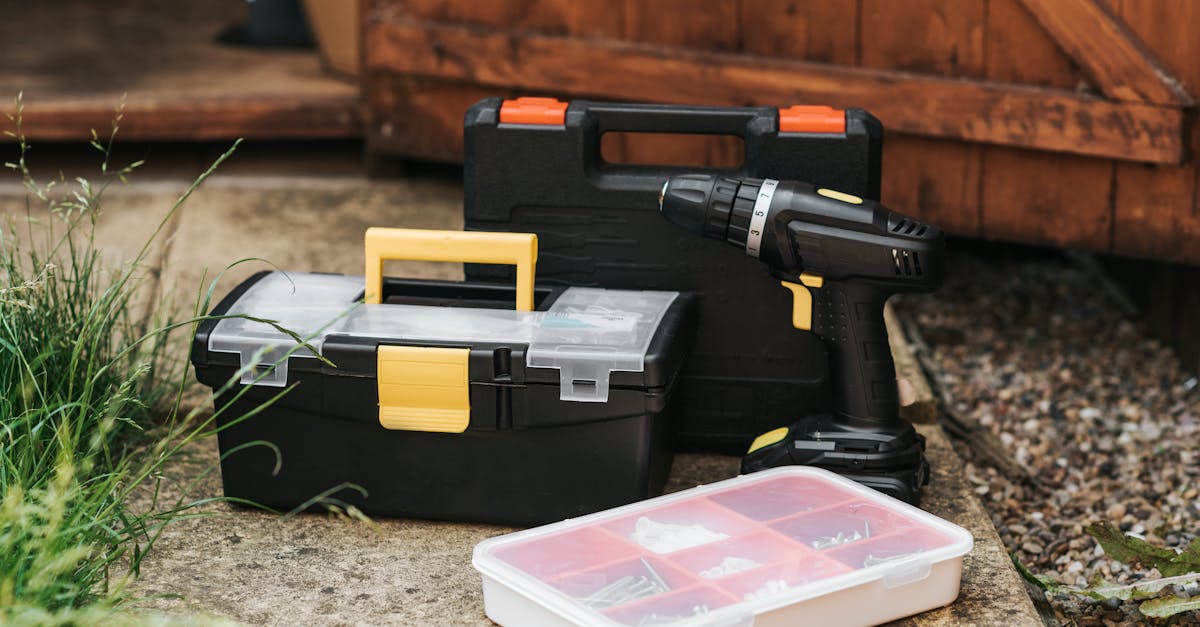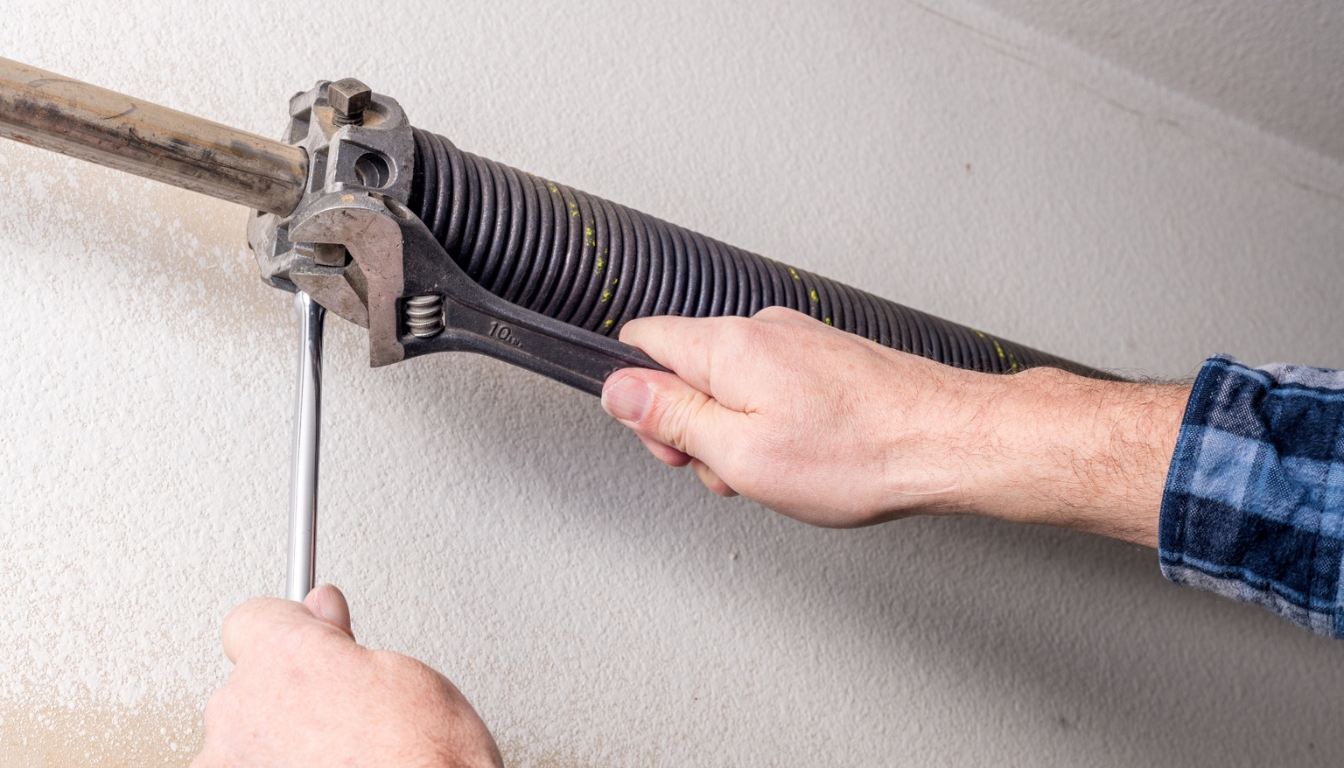
Table Of Contents
Signs That Indicate a Faulty Garage Door Spring
Faulty garage door springs can pose a serious risk to your safety and the functionality of your garage door. It is crucial to be able to identify signs that indicate a faulty garage door spring so that you can address the issue promptly. One common indication of a problematic spring is if your garage door begins to operate slowly or unevenly. If you notice delays in the opening or closing of your garage door, it could be a sign that the spring is not functioning properly and may need Garage Door Spring Repair.
Another red flag to look out for is if your garage door makes unusual noises during operation. Squeaking, grinding, or popping sounds could signify that the spring is worn out or damaged. Ignoring these noises can lead to further complications and potentially result in the complete failure of the spring. Regularly inspecting your garage door for any unusual sounds or movements can help you detect issues early and prevent costly repairs down the line.
How to Identify Spring Issues
Identifying issues with your garage door spring is crucial for ensuring the safety and functionality of your garage door system. One common indicator of a faulty spring is if your garage door struggles to open or close smoothly, appearing jerky or uneven in its movements. Additionally, if you notice any unusual sounds coming from your garage door during operation, such as squeaking, grinding, or popping noises, it might signify a problem with the spring. It is essential to address these issues promptly to avoid further damage and ensure the longevity of your garage door system. If you suspect any problems with your garage door spring, it is recommended to consult a professional for accurate diagnosis and safe Garage Door Spring Repair.
Hiring a Professional vs. DIY Garage Door Spring Repair
When it comes to Garage Door Spring Repair, one must consider whether to hire a professional or opt for a do-it-yourself approach. Hiring a professional offers the assurance of expertise and experience. Professionals possess the necessary skills and knowledge to accurately diagnose and fix garage door spring issues. They can efficiently handle repairs, ensuring the safety and functionality of the garage door system. However, it is important to note that professional services come with a cost, which can vary based on the complexity of the repair required.
On the other hand, opting for a DIY approach to Garage Door Spring Repair can be appealing to those who are proficient in home repairs and have experience working with garage doors. DIY repairs offer the benefit of cost-saving, as you won't have to pay for professional services. Additionally, it can be a rewarding experience to successfully fix the garage door spring on your own. However, it is crucial to acknowledge the risks involved in DIY repairs, especially if you lack the necessary skills and knowledge. Improper repairs can lead to further damage or even pose safety hazards.
Pros and Cons of Hiring a Professional
When it comes to Garage Door Spring Repair, hiring a professional has its undeniable advantages. These experts possess the required knowledge and experience to safely and efficiently address any issues with your garage door springs. By entrusting the task to a professional, you can have peace of mind knowing that the repair work is being carried out correctly and that the risk of any potential accidents or further damage is minimised.
On the flip side, one of the drawbacks of opting to hire a professional for Garage Door Spring Repair is the cost involved. These services can often come at a price, which may be a deterrent for those looking to save money. Additionally, scheduling appointments with professionals may not always align with your timeline, causing delays in getting your garage door springs fixed promptly.
Maintaining Garage Door Springs for Longevity
To extend the lifespan of your garage door springs, regular maintenance is crucial. Conduct visual inspections frequently to check for any signs of wear and tear. Look for rust, cracks, or gaps in the springs that could indicate damage. It is recommended to lubricate the springs every few months with a silicone-based lubricant to reduce friction and prevent corrosion. Additionally, avoid putting excessive strain on the springs by ensuring that the door is properly balanced and not too heavy, as this can lead to premature wear and breakage of the springs. Garage Door Spring Repair can be costly, so taking these preventative measures can help you avoid unexpected expenses and ensure the smooth operation of your garage door.
In addition to visual inspections and regular lubrication, it is important to be mindful of how you operate your garage door. Avoid slamming the door shut or opening it forcefully as this can put unnecessary strain on the springs. It is also advisable to refrain from using the door as a means to prop or hold objects, as this can cause misalignment and imbalance in the springs. By treating your garage door with care and being proactive in Garage Door Spring Repair and maintenance, you can significantly increase the longevity of your springs and ensure that your garage door operates efficiently for years to come.
Tips for Preventative Maintenance
Regular maintenance is crucial to ensure the smooth functioning of your garage door springs. One essential tip for preventative maintenance is to periodically lubricate the springs to reduce friction and wear. Using a silicone-based lubricant can help extend the lifespan of your springs and prevent them from breaking prematurely. Additionally, make sure to visually inspect the springs for any signs of wear or damage, such as rust or fraying. Addressing these issues promptly can help prevent costly Garage Door Spring Repair down the line.
Another important aspect of preventative maintenance is to test the balance of your garage door regularly. An unbalanced door can place excessive strain on the springs, leading to accelerated wear and potential breakage. To check the balance, disconnect the door from the automatic opener and manually lift it halfway. If the door stays in place, it is properly balanced; if it moves up or down, you may need to adjust the tension of the springs. By staying proactive with these maintenance tasks, you can prolong the life of your garage door springs and avoid unexpected repairs.
FAQS
Is it safe to fix my own garage door spring?
Garage door spring repair can be dangerous and should be handled by trained professionals to avoid injury or further damage to the door.
What are the risks of attempting to repair a garage door spring myself?
Attempting to repair a garage door spring without proper knowledge and tools can lead to accidents, property damage, and even serious injuries.
Can I save money by fixing my own garage door spring instead of hiring a professional?
While it may seem like a way to save money initially, DIY garage door spring repair can end up costing more in the long run if mistakes are made or if additional repairs are needed due to improper repair techniques.
How do I know if my garage door spring needs to be repaired or replaced?
Signs of a faulty garage door spring include the door not opening or closing properly, loud noises during operation, and visible wear and tear on the spring itself.
What should I do if I suspect there is a problem with my garage door spring?
It is best to contact a professional garage door repair service to assess the situation and recommend the appropriate course of action to ensure the safety and functionality of your garage door.




